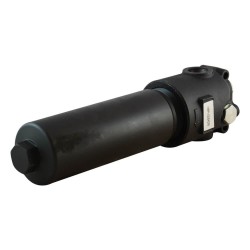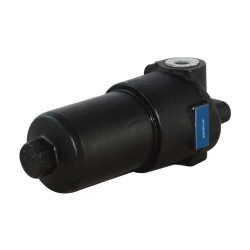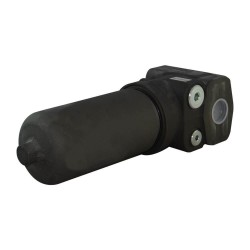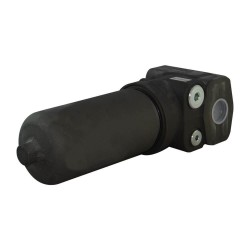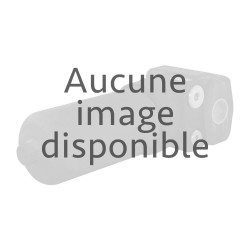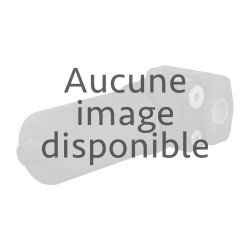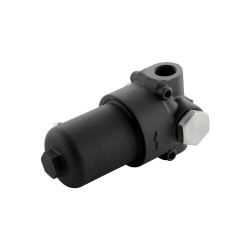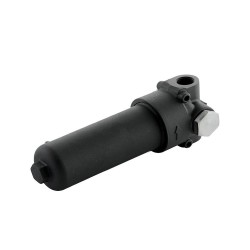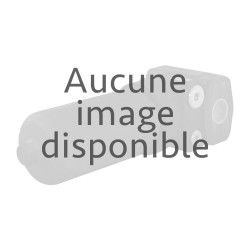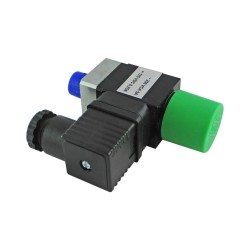Imagine a hydraulic system without a Pressure Filter - it's akin to a racing car without oil. It might function for a while, but for how long and at what cost ? Hydraulic Pressure Filter : Importance in Hydraulic Systems In hydraulic systems, the performance and durability of equipment heavily rely on the cleanliness of the hydraulic fluid c...
Imagine a hydraulic system without a Pressure Filter - it's akin to a racing car without oil. It might function for a while, but for how long and at what cost ?
Hydraulic Pressure Filter : Importance in Hydraulic Systems
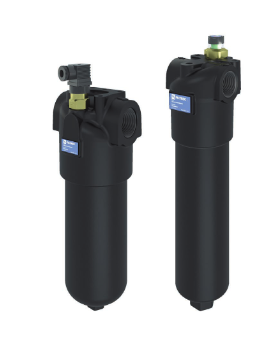
In hydraulic systems, the performance and durability of equipment heavily rely on the cleanliness of the hydraulic fluid circulating through them. The Hydraulic Pressure Filter plays a crucial role in this context by eliminating contaminants that can damage components, reduce efficiency, and lead to costly breakdowns.
Understanding How Pressure Filters Work
Hydraulic systems, whether used in industrial, agricultural, or mobile sectors, are often exposed to harsh environments where contamination is inevitable. Dust, metal debris, water, and other impurities can infiltrate hydraulic fluid. Without adequate filtration, these contaminants can cause premature wear of components such as pumps, motors, cylinders, and valves, resulting in unexpected downtime and high maintenance costs.
The operation of a Pressure Filter is relatively simple yet effective. Hydraulic fluid passes through the filter media, which traps particles and contaminants. The clean fluid continues its path through the system, thus ensuring continuous protection of critical components like hydraulic pumps, motors, and cylinders.
Why Choosing the Right Pressure Filter is Essential
Choosing the right Hydraulic Pressure Filter is crucial for several reasons :
- Component Protection: A quality filter removes particles and contaminants from hydraulic fluid, protecting sensitive components from damage. This extends equipment life and reduces repair and replacement costs.
- System Efficiency: Clean fluid circulates more freely, improving the operational efficiency of the hydraulic system. This translates into better overall performance and optimized energy consumption.
- Reduced Downtime: By minimizing wear and failures, a good hydraulic pressure filter reduces unplanned downtime. Systems can operate longer without interruption, which is particularly critical in industrial applications where downtime can be extremely costly.
- Compliance with Standards: Many industrial sectors have strict standards for fluid cleanliness. Using the right filter ensures compliance with these requirements, thereby avoiding potential penalties and warranty issues.
Hydraulic Pressure Filters are essential components for maintaining the reliability and efficiency of hydraulic systems. Choosing a filter that suits the specific needs of your system is a strategic decision that can significantly impact performance and operational costs. To optimize your hydraulic system and ensure its longevity, invest in high-quality filters and follow a rigorous maintenance program.
For more information on different types of Pressure Filters and to find out which one best suits your specific needs, contact our experts today.
Types of Hydraulic Pressure Filters
There are several types of pressure filters, each tailored to specific needs and different operating conditions. Here is an overview of the main types:
Inline Hydraulic Filter
Inline hydraulic pressure filters are directly integrated into the hydraulic circuit. They are typically installed in return lines, suction lines, or pressure lines. Inline filters are designed to provide continuous filtration and often come equipped with clogging indicators to signal when it's time to replace the filter element. They are suitable for a variety of applications due to their versatility and ability to be installed at different points in the system.
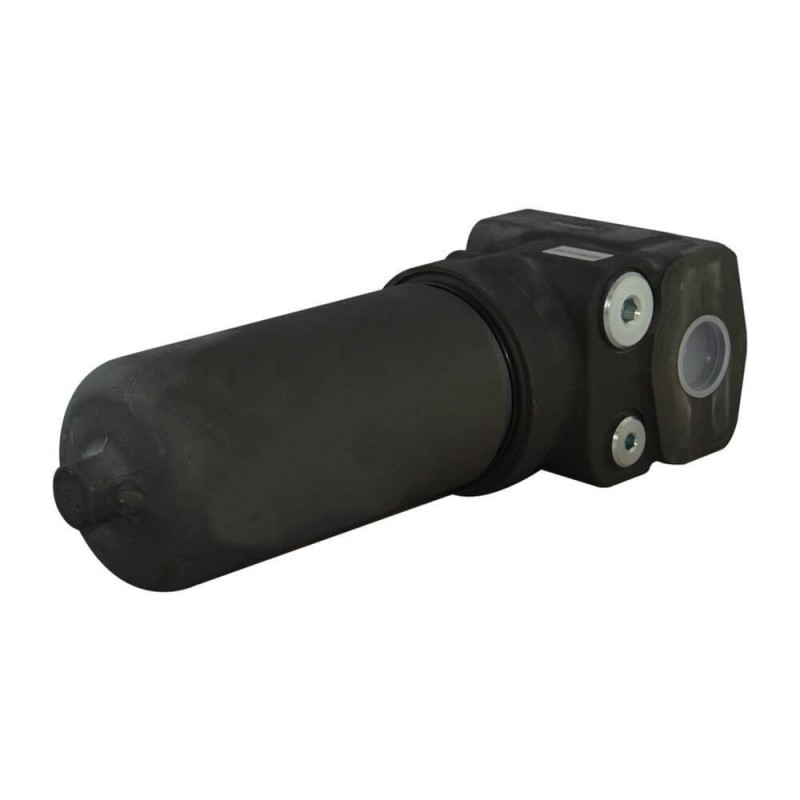
High-pressure hydraulic filter is specifically designed to operate in environments where pressure can reach very high levels. They are robust and built to withstand pressures up to several hundred bars. These filters are commonly used in heavy industrial applications where operating conditions are demanding. They provide maximum protection to the most sensitive components of the hydraulic system by preventing particles from entering high-pressure circuits.
Medium Pressure Filter
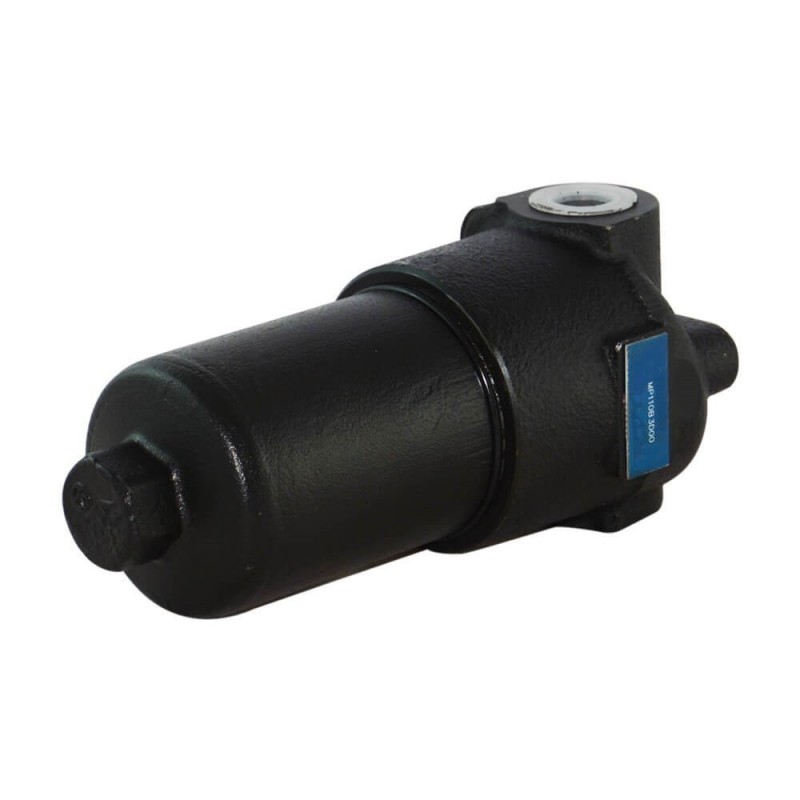
Medium-Pressure Hydraulic Filter is used in systems where the pressure is moderate. They are often more compact than high-pressure filters and are installed in lines where pressure requirements are not as high. These filters are commonly used in mobile and industrial applications, offering a balance between filtration performance and structural robustness.
Assistance in Selection and Installation of Hydraulic Pressure Filters
Selection Criteria
When selecting a pressure filter, it is important to consider several factors to ensure that the chosen filter meets the specific needs of your hydraulic system. Here is a list of the most important selection criteria :
| Criterion | Description | Importance |
|---|
| Flow Rate | Maximum capacity of the filter to handle fluid volume (L/min). Ensures effective filtration without excessive pressure drop. | Essential for efficient operation and preventing flow restrictions. |
| Operating Pressure | Capability of the filter to withstand system pressure (bars). Choose a filter that matches the system pressure to prevent failures. | Critical to avoid structural failures and ensure longevity of the filter. |
| Filtration Level | Size of particles retained by the filter (microns). Fine filtration needed for sensitive applications, ensures cleanliness of the fluid. | Vital for maintaining fluid purity and protecting hydraulic components. |
| Type of Contaminants | Types of contaminants to be removed (solid particles, water, metal debris, etc.). Ensures effective removal of specific contaminants present in the system. | Crucial for preventing component wear and maintaining system reliability. |
| Fluid Compatibility | Materials of the filter compatible with the hydraulic fluid used. Prevents filter degradation and ensures long service life. | Ensures compatibility and extends the operational lifespan of the filter. |
| Environmental Conditions | Temperature, corrosive or dusty environment, etc. Select a filter that withstands the specific conditions of the application. | Adaptation to environmental challenges ensures consistent filter performance. |
| Maintenance and Replacement | Ease of maintenance and availability of spare parts. Simplifies maintenance management, reduces downtime for replacement. | Facilitates upkeep and minimizes disruptions in system operation. |
| Standards and Certifications | Compliance with industry standards and relevant certifications. Ensures filter reliability and quality, necessary for certain industrial applications. | Ensures adherence to quality benchmarks and regulatory requirements. |
Installation Instructions
Proper installation of a hydraulic pressure filter is important to ensure optimal operation and effective protection of your system. Here are some tips for successful installation:
- Choose the right location: Install filters in an easily accessible location for maintenance, preferably in return lines to capture contaminants before they return to the tank.
- Correct orientation: Ensure the filter is installed in the correct orientation, following manufacturer's instructions. Inlet and outlet should match the hydraulic system connections.
- Secure connection: Use quality fittings and hoses to prevent leaks. Tighten connections according to manufacturer specifications to ensure a perfect seal.
- Check seals: Inspect seals and O-rings to ensure they are in good condition and correctly positioned. Replace them if necessary.
- Air bleeding: After installation, bleed air from the system to avoid cavitation and performance issues. This can be done using bleed valves or depressurization devices.
Maintenance Tips
Regular maintenance of hydraulic pressure filters is crucial to extend their lifespan and ensure optimal system performance. Here are some tips and best practices:
- Regular monitoring: Regularly inspect pressure filters for signs of clogging or degradation. Use clogging indicators to know when it's time to replace the filter.
- Cleaning and replacement: Follow manufacturer's recommendations for cleaning or replacing filter elements. Do not exceed prescribed service intervals.
- Contamination checking: Regularly analyze hydraulic fluid to check for contaminants. This can help identify potential issues before they cause serious damage.
- Clean environment: Maintain a clean environment around the filter location to minimize introduction of contaminants during maintenance.
- Service recording: Keep a maintenance log to track filter replacements and inspections. This helps plan future interventions and ensure proactive maintenance.
FAQs about Hydraulic Pressure Filters
What are the signs indicating a pressure filter needs to be replaced ?
Common signs include an increase in differential pressure, reduced performance of the hydraulic system, and clogging indicators showing filter saturation.
How to diagnose problems related to hydraulic pressure filters ?
To diagnose problems, check clogging indicators, inspect filter elements for signs of degradation, and analyze hydraulic fluid for contaminants.
How often should hydraulic pressure filters be replaced ?
The replacement frequency depends on manufacturer recommendations and operating conditions. Generally, it is advisable to replace filters every 500 to 1000 operating hours or as indicated by clogging indicators.
What types of contaminants can hydraulic pressure filters remove ?
Hydraulic pressure filters can remove solid particles, metal debris, water, and other impurities present in hydraulic fluid.
Choosing OCGF Hydraulic Pressure Filters
OCGF offers a wide selection of pressure filters, including high-pressure filters, medium-pressure filters, and inline filters, suitable for various industrial and mobile applications. Whatever your need, we have the filter that will meet your specific requirements.
With years of experience in the hydraulic field, our team of experts is ready to advise and help you choose the ideal filter for your application. We offer comprehensive technical support to ensure proper installation and optimal maintenance of your filters.
OCGF is committed to providing express delivery service worldwide. No matter where you are located, you can rely on us to deliver the filters you need quickly. We understand the urgency of your needs and ensure your orders arrive on time, every time.
Don't let contaminants compromise the performance of your hydraulic systems. Choose OCGF hydraulic pressure filters and benefit from quality products, technical expertise, and express delivery service worldwide.
Contact us today for a personalized quote or to learn more about our range of hydraulic pressure filters.




